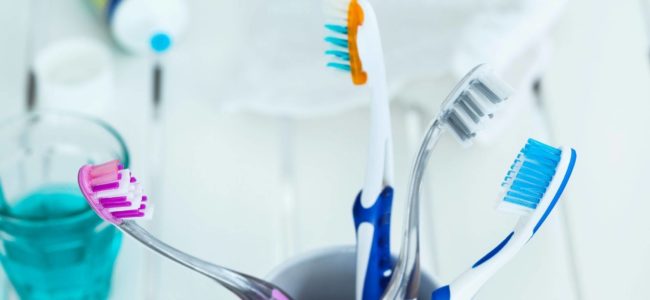Can Tartar Fall Off My Teeth?
There are many effective ways to maintain that fresh-from-the-dentist feeling at home. However, some routine issues, like the removal of tartar buildup, can only be taken care of by a dental professional. Once tartar has formed on your teeth, there’s no budging it without risking damage to your teeth or gums. Tartar is stuck on teeth until it can be removed professionally, but there are ways to prevent buildup at home.
What Is Tartar?
Tartar, also referred to as dental calculus, is a hard, usually white substance that forms on your teeth. It is a mixture of plaque and minerals from saliva. Tartar itself is very porous, which makes it susceptible to stains from everyday foods and beverages. It is very hard and can even encroach on your gum line. The spots of tartar on your teeth, often called deposits, can sit on or in between your teeth. These pesky deposits can be disruptive in and of themselves. They’re hard and feel sharp and rough when you run your tongue over them. They can cause bad breath and erode your tooth enamel, leading to other oral health issues like tooth sensitivity and even tooth loss. An unchecked buildup of tartar on your teeth can also increase your likelihood of getting gum disease. And, last but not least, tartar buildup can look terrible on your teeth. The little spots are usually a shade of ivory to brown, depending on where they’re located and what food or beverage has been in contact with them.
How to Remove Tartar
Regular dental visits will help prevent the buildup of tartar. But, if you haven’t been keeping up with a brushing and flossing routine, a dental hygienist can help you take care of any tartar buildup you might be experiencing as a result. Even though there are many ways touted online to help remove tartar, it can be more difficult than you realize. This is why it’s important to rely on the education and professional tools that dentists have to remove tartar from your teeth.
Tartar removal is a routine part of a dental cleaning. Dentists and hygienists use a small, metal tool to scrape off the hard, sticky buildup from your teeth. This process can take several minutes, depending on the amount of tartar buildup on your teeth. This process is painless, but can be uncomfortable because of the pressure exerted by the dental professional, and from the sound and feel of the metal tool scraping against your teeth. If tartar buildup has caused any other issues, your dentist may recommend further dental procedures to heal and correct.
Ways to Prevent Tartar Buildup
While going to a dentist to remove tartar is necessary once tartar has formed and adhered to your teeth, the best way to remove tartar is to prevent it from forming in the first place. Having a solid oral hygiene routine will help prevent plaque and tartar before you need to have them removed by a professional. Make sure you:
- Brush twice a day with a soft-bristled toothbrush, and replace your toothbrush every three months.
- Floss once a day to get into those places your toothbrush can’t.
- Rinse your mouth with a fluoride rinse to remove any bacteria buildup you might have missed.
- Visit your dentist every 6 months for routine check-ups.
- Minimize smoking to reduce your risk of plaque and tartar buildup.
With proper know-how and preventative care, you can prevent plaque and tartar from building on your teeth before it’s too late. If you currently have plaque or tartar buildup, do not attempt to remove it from home. It’s important to see your dentist so that they can safely and effectively remove the tartar for you.
